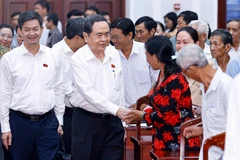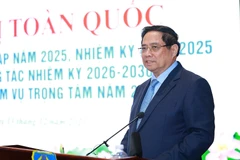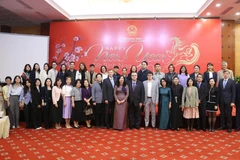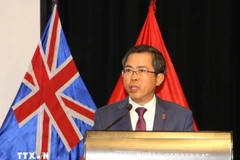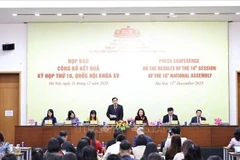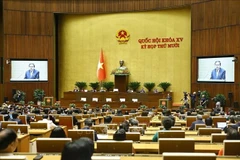Answering NA Chairman Nguyen Sinh Hung’s questions on the responsibilityof judges when giving out wrong convictions, Binh said they may facesuspension of reappointment, criminal proceedings or financial fines,depending on the seriousness of their mistakes.
NAChairman Nguyen Sinh Hung, in conclusion, said courts are to blame ifany citizen is given a wrong conviction. Those who are to be heldaccountable are judges, chair of the trial, and jury panel, with ChiefJudge of the Supreme People’s Court holding the highest politicalresponsibility.
The chief judge reported that theSupreme People’s Court has joined an inter-sectoral team grouping theSupreme People’s Procuracy and the Ministry of Public Security to handlerequests for reinvestigation in 35 cases with sentences ranging from 20years in prison to the capital punishment which were tried during the13th tenure of the National Assembly.
According toBinh, the joint inspection found no ground for retrial in 21 cases,while three other cases were referred to reviewing in order to clarifythe characteristics and levels of law violations. The remaining 11 casesare still being scrutinized, he said.
Besides thepoor capacity of judges, Binh said another reason for wrongfulconvictions in criminal cases was the dependence on documents andevidence supplied by the investigative agency.
Toreduce wrongful conviction, he emphasized the need to enhance the roleand responsibility of lawyers right at the start of a criminal case,while more training in both morals and professional skills should begiven to court staff.
During the session, Binh alsospoke at length about five criminal cases of public concern thatinvolve murder, asset robbery, child rape, and deliberate destruction ofassets, including the settlement of wrong murder conviction on NguyenThanh Chan, 55, from the northern province of Bac Giang.-VNA
